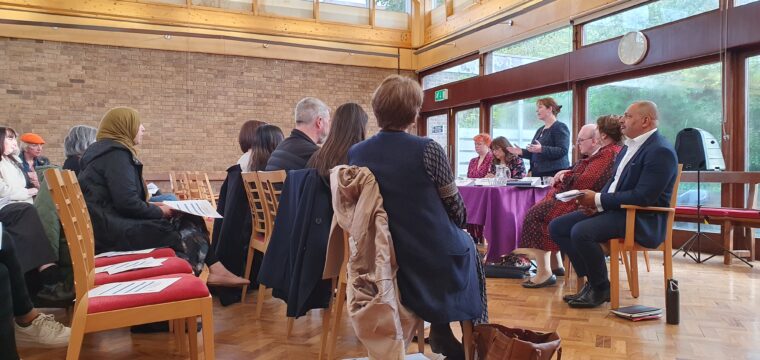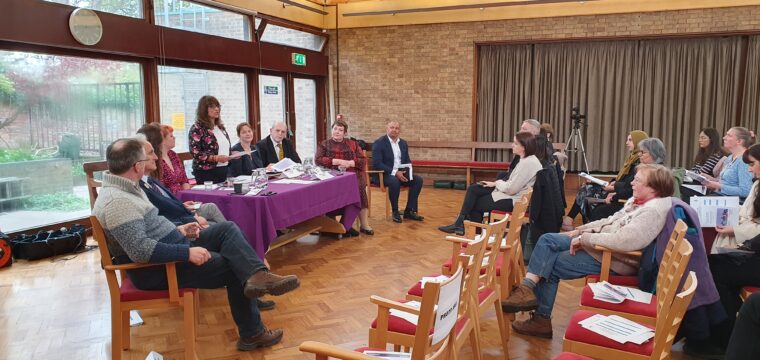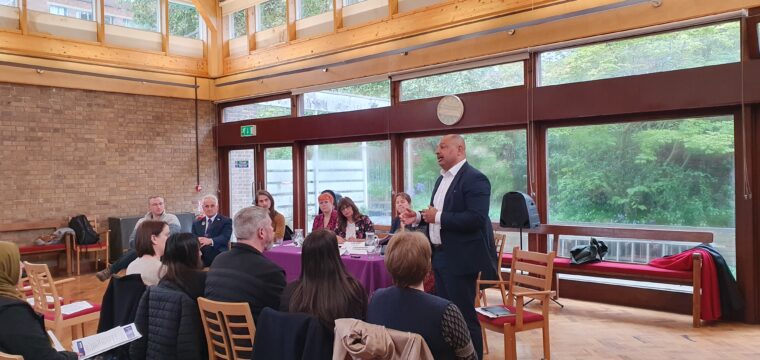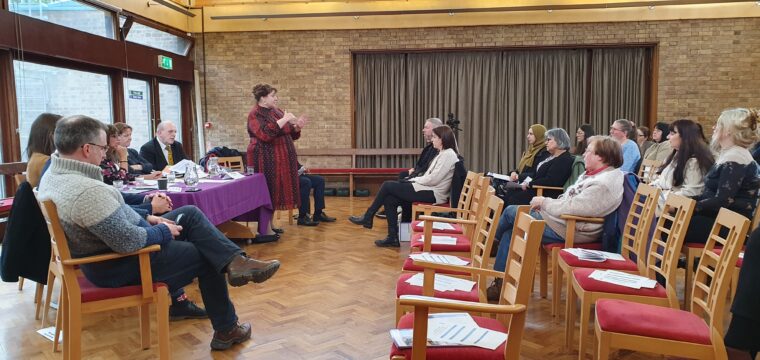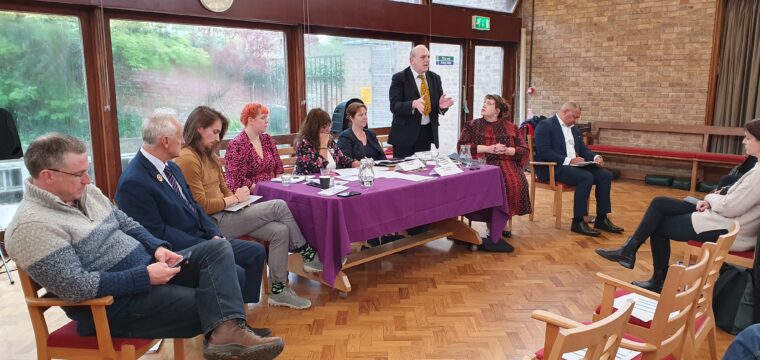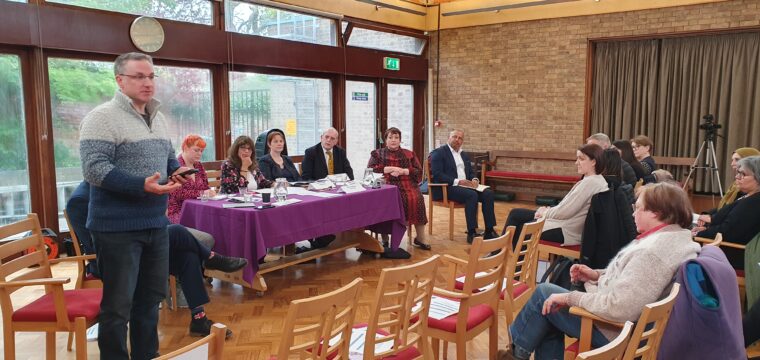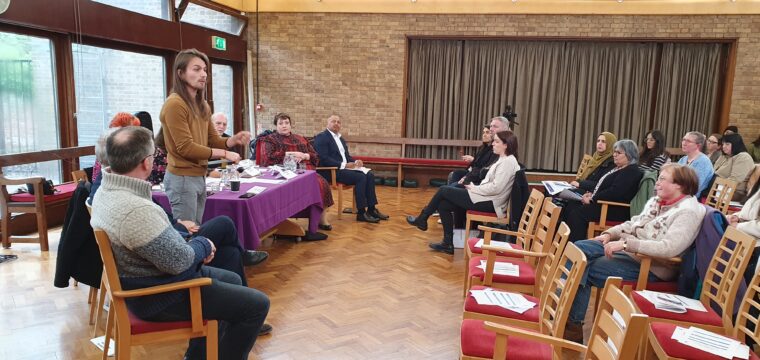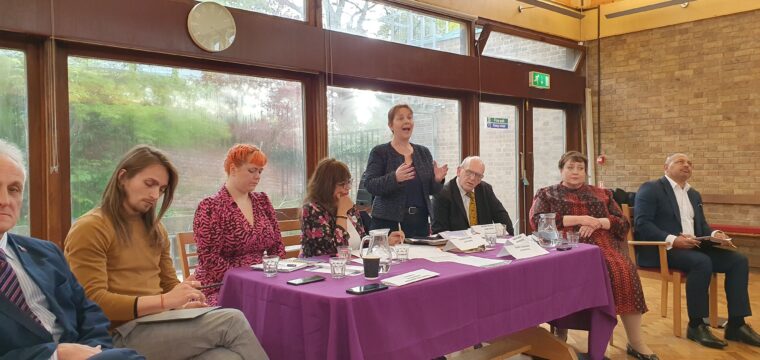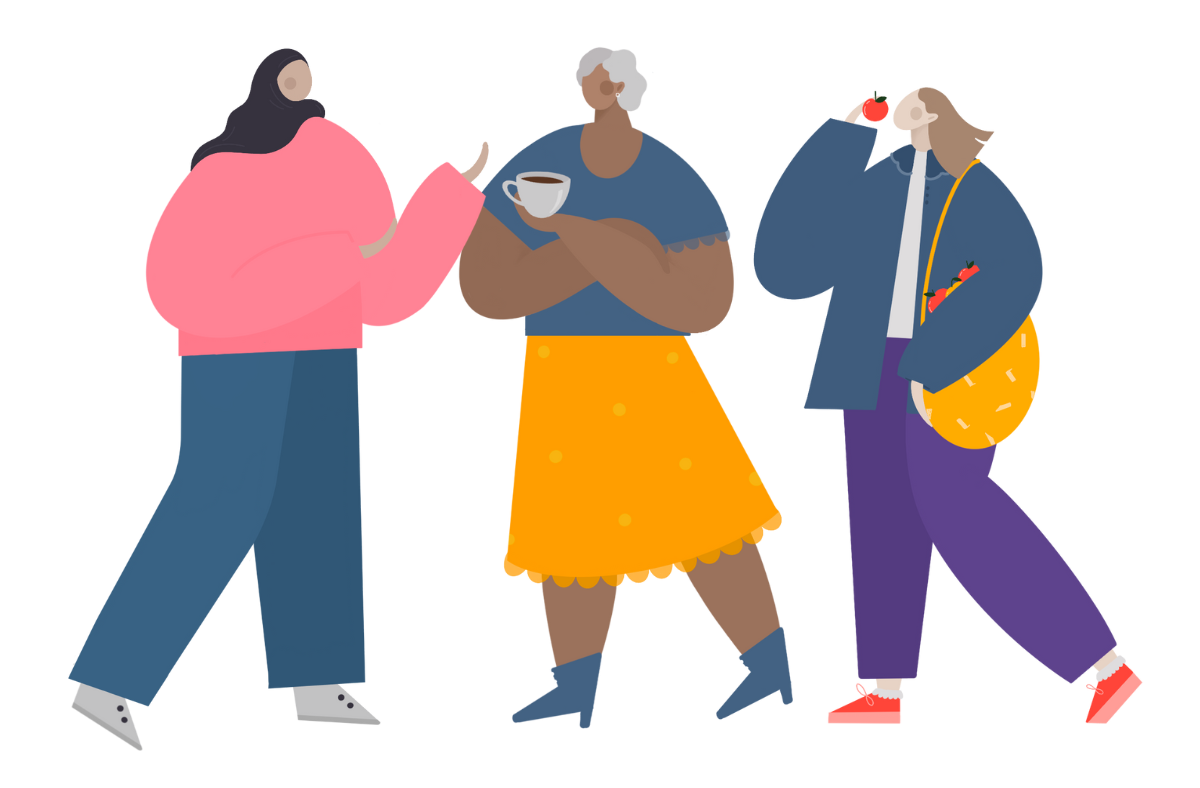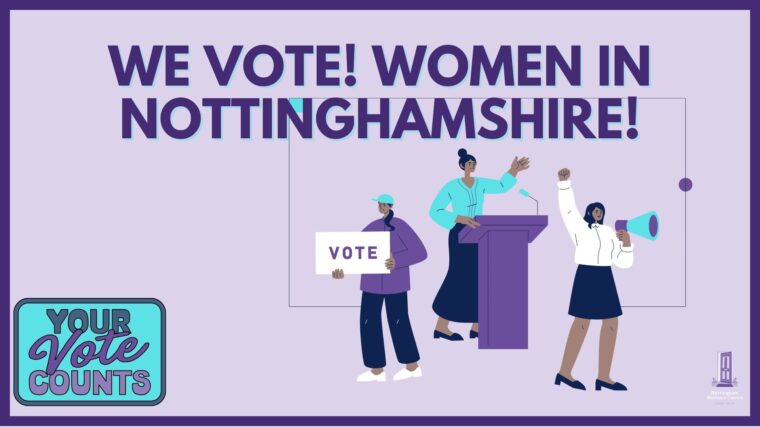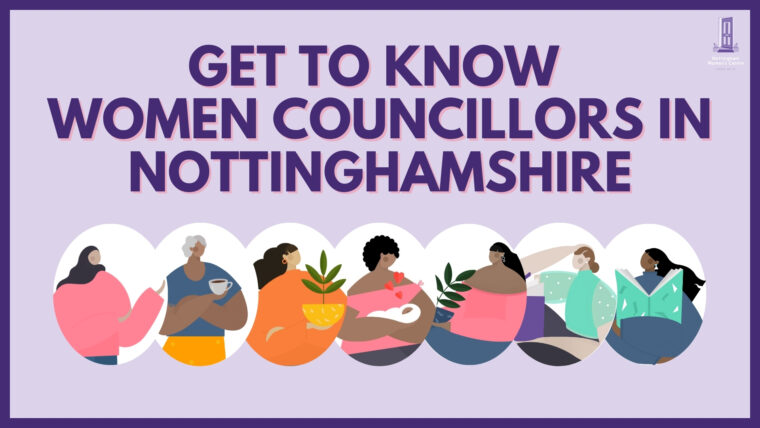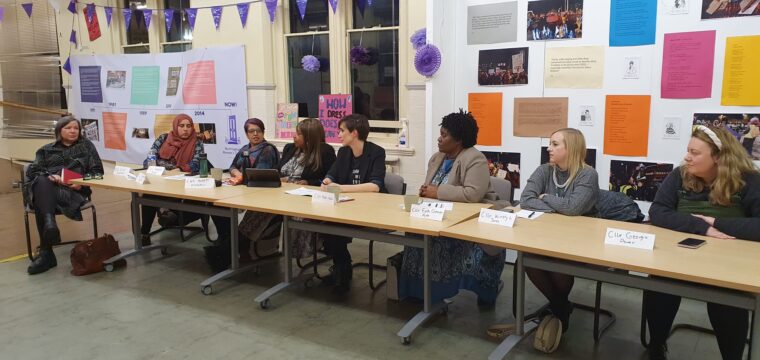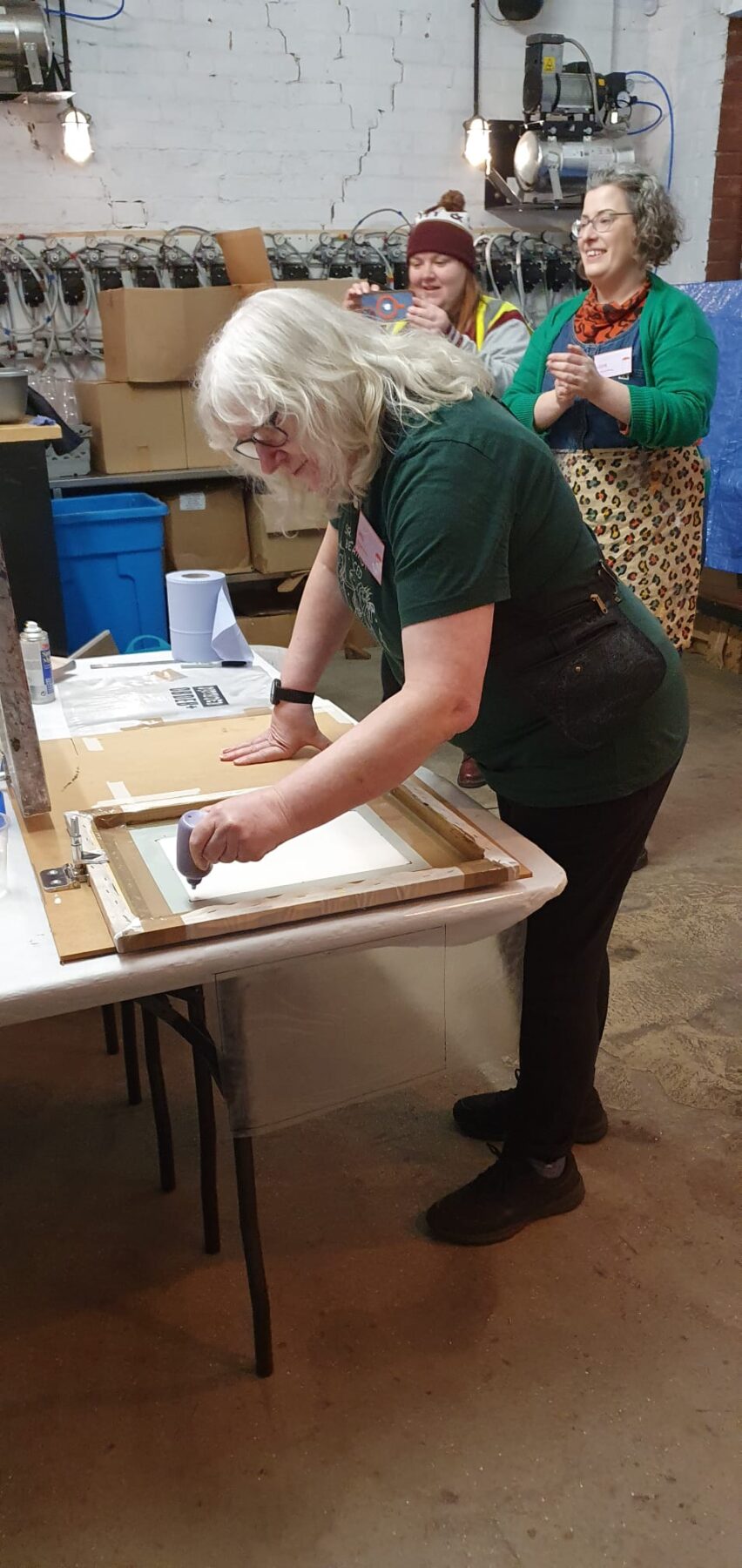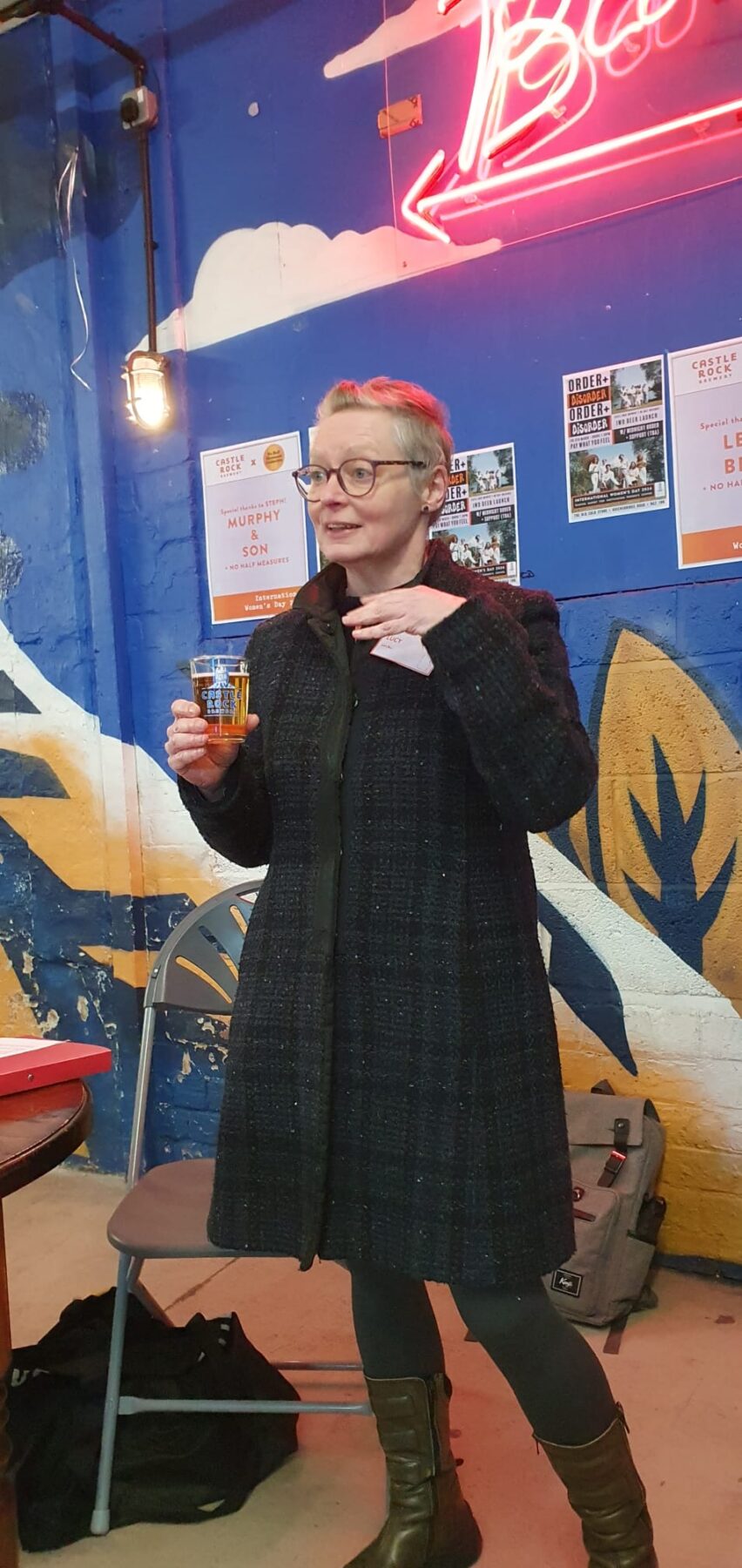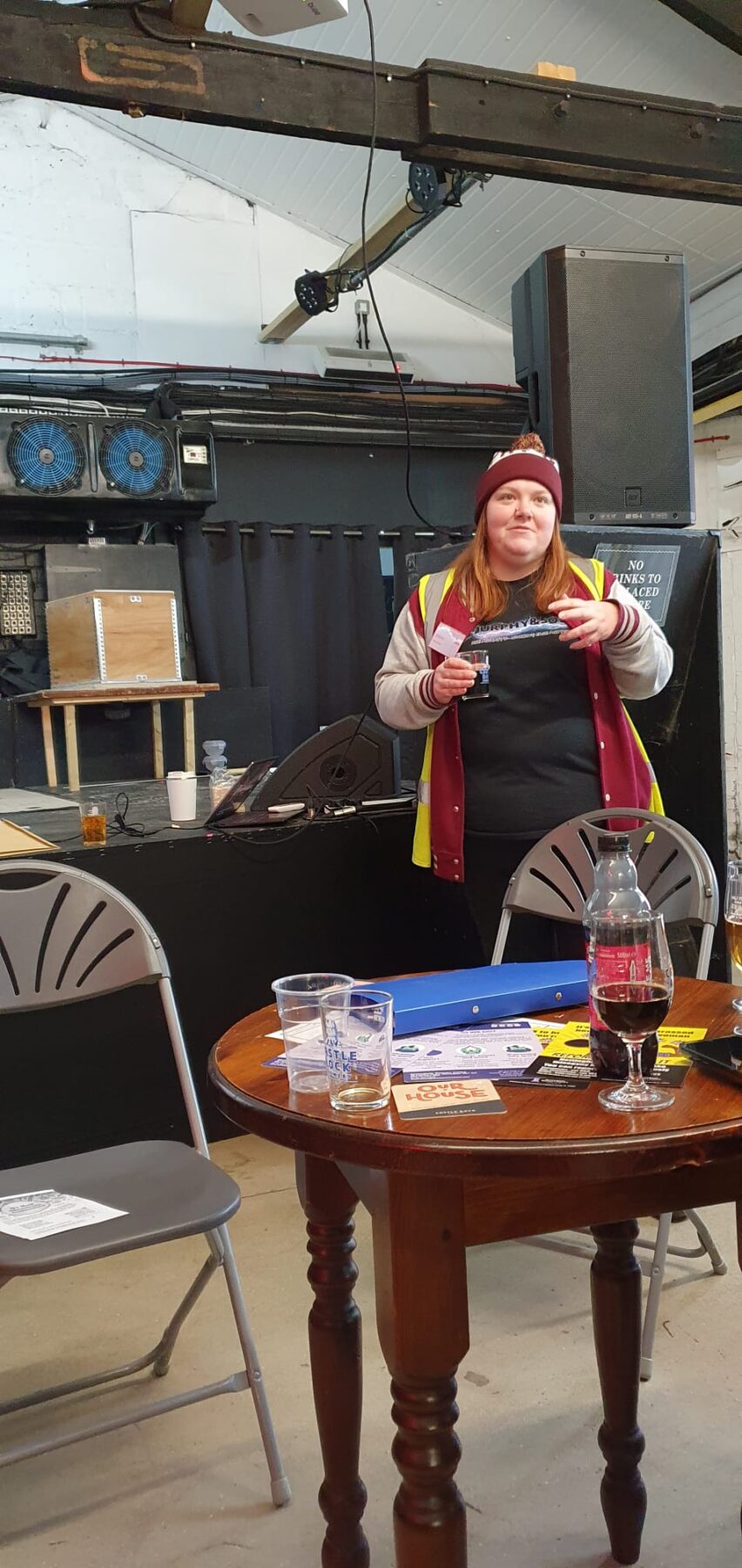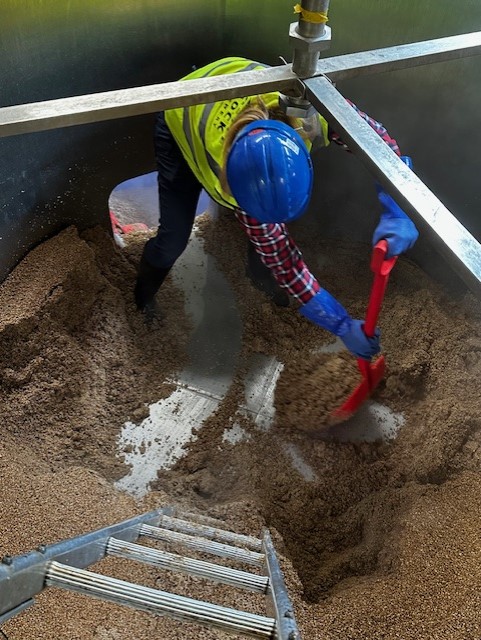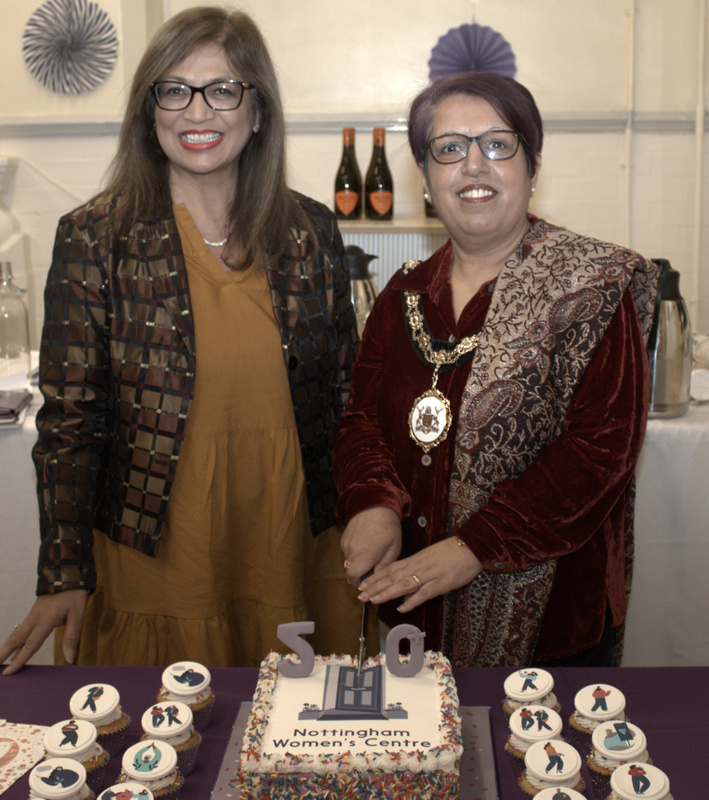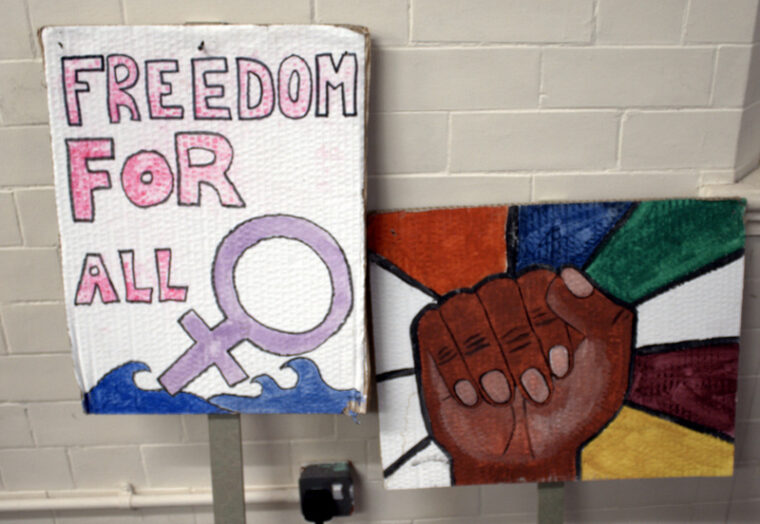Our amazing caseworker Joanna and her fab friends took part in the Inflatable 5K last month.
They were raising money for our Crisis Fund, which helps provide vital support for women in Nottingham.
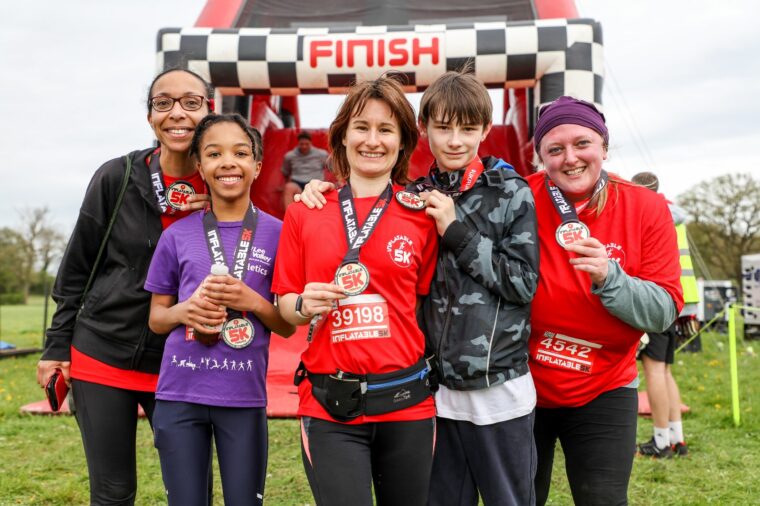
Hear about Joanna and her friends’ adventures completing the course…
On 13th April my friends and I completed the Inflatable 5K to help raise funds for Nottingham Women’s Centre’s (NWC) Crisis Fund. I wanted to do something for fitness and fun, and to help others. Alongside me were a team of 3 mums and their 3 children. As we set off the weather was good, and so were the friends I ran with. They breezed through the course, but I quickly realised I’d been left behind! My friend’s son decided to hang back and we walked it together.
Clamouring over giant inflatables, which was lots of fun if a little bit risky! Swinging over one obstacle, crawling through tunnels, dodging holes, racing past inflatable hammers, or stepping round inflatable pillars which bounce back almost knocking me out, up huge steps, down huge steps, running and jumping over inflatable walls!! I was lucky not to lose a shoe or pick up an injury!! I then realised we had to do the course twice!

We had lots of fun and banter as we went round again. Through bungy wires and over inflatables, we made it to the finish sliding down a giant inflatable bouncy castle slide for a photo. Even if it was 10 minutes after everyone else! It made for a really fun day! As a team we raised over £600 for NWC’s Crisis Fund. Thank you to all our supporters for all the generous and kind donations.

It was a great day, a lot of fun to be running through the inflatable obstacles with friends and family. I’m proud of raising money for Nottingham Women’s Centre as it’s such a worthy cause.
Tamsin
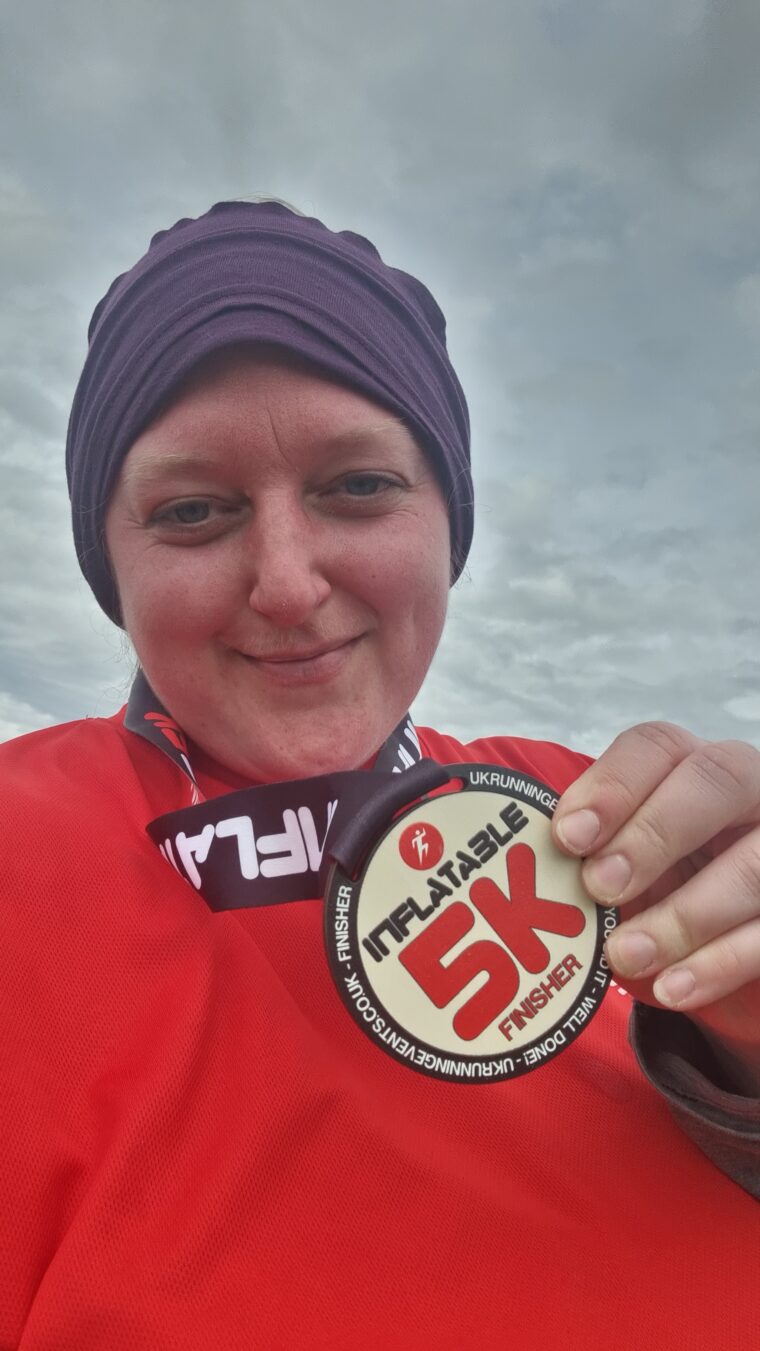
Well done Joanna and friends!! Incredible effort all round, and we’re so grateful to you all for your support!
If you would like to take on a fun challenge to raise some much-needed funds to support women in Nottingham, have a look at our Fundraising page!

